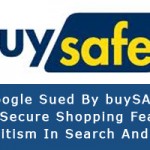 New York — If you are an online reader of the New York Times, possibilities are that you received spam email advising you that you canceled your print subscription, even if you did not have one. The New York Times erroneously flooded email inboxes on Wednesday when a message destined for a few readers who had canceled their subscriptions ended up going out to millions.
New York — If you are an online reader of the New York Times, possibilities are that you received spam email advising you that you canceled your print subscription, even if you did not have one. The New York Times erroneously flooded email inboxes on Wednesday when a message destined for a few readers who had canceled their subscriptions ended up going out to millions.
According to The New York Times’ Amy Chozick who tweeted on Wednesday that the email was reportedly sent by the New York Times to more than 8 million people. The Times confirmed that the email message was only meant for a small number of subscribers. “We regret this error and our earlier communication about it,” the Times tweeted. A Times Company spokesperson said that of the 8.6 million people who received the email, no one’s security had been compromised.
Those who receive home delivery subscriptions from the New York Times, and even non-print subscribers, might have gotten an email on Wednesday informing that their print subscription has been canceled. The newspaper said the email inviting Times readers to renew their current subscription “at an exclusive rate of 50 percent off for 16 weeks” had ended up reaching 8.6 million readers by mistake.
“We regret the error,” Times Co. spokeswoman Eileen Murphy said in a statement.
“This email should have been sent to a very small number of subscribers, but instead was sent to a vast distribution list made up of people who had previously provided their email address to The New York Times,” she said.

Credit: Screenshot by Anne Dujmovic/CNET)

The Times also sent a correction email to all of its subscribers, apologizing for any confusion the email may have caused. The message was sent from the address nytimes@email.newyorktimes.com.
Dear Home Delivery Subscriber,
Our records indicate that you recently requested to cancel your home delivery subscription. Please keep in mind when your delivery service ends, you will no longer have unlimited access to NYTimes.com and our NYTimes apps.
We do hope you’ll reconsider.
As a valued Times reader we invite you to continue your current subscription at an exclusive rate of 50% off for 16 weeks. This is a limited-time offer and will no longer be valid once your current subscription ends.*
Continue your subscription and you’ll keep your free, unlimited digital access, a benefit available only for our home delivery subscribers. You’ll receive unlimited access to NYTimes.com on any device, full access to our smartphone and iPad® apps, plus you can now share your unlimited access with a family member.
To continue your subscription call 1-877-698-0025 and mention code 38H9H (Monday – Friday, 8:30 a.m. to 8:30 p.m.; Saturday, 9 a.m. to 3 p.m. E.D.T.).
Murphy, in a statement said that “no one’s security has been compromised” by the email blast.
After a flurry of tweets about the e-mail showed up on the social-networking site Twitter, the newspaper responded, stating that the e-mail was a fake.
@gteresa: “Nothing like a hack/spam/email #fail to show that yes, we all still read The New York Times.”
@SteveKovach: “Verizon outage causes New York Times spam email blast because Tim Tebow is an evangelical Christian.”
@ReformedBroker: “Oh my god, the fake New York Times subscription email is the worst thing that ever happened, including Hitler.”
Robert Christie, The Times’ senior vice president of communications, tweeted that the company was “investigating the emails.” The Times wrote that people “familiar with The Times’ technical operations said it was unclear whether it was spam or possibly an erroneous mass e-mail.”


